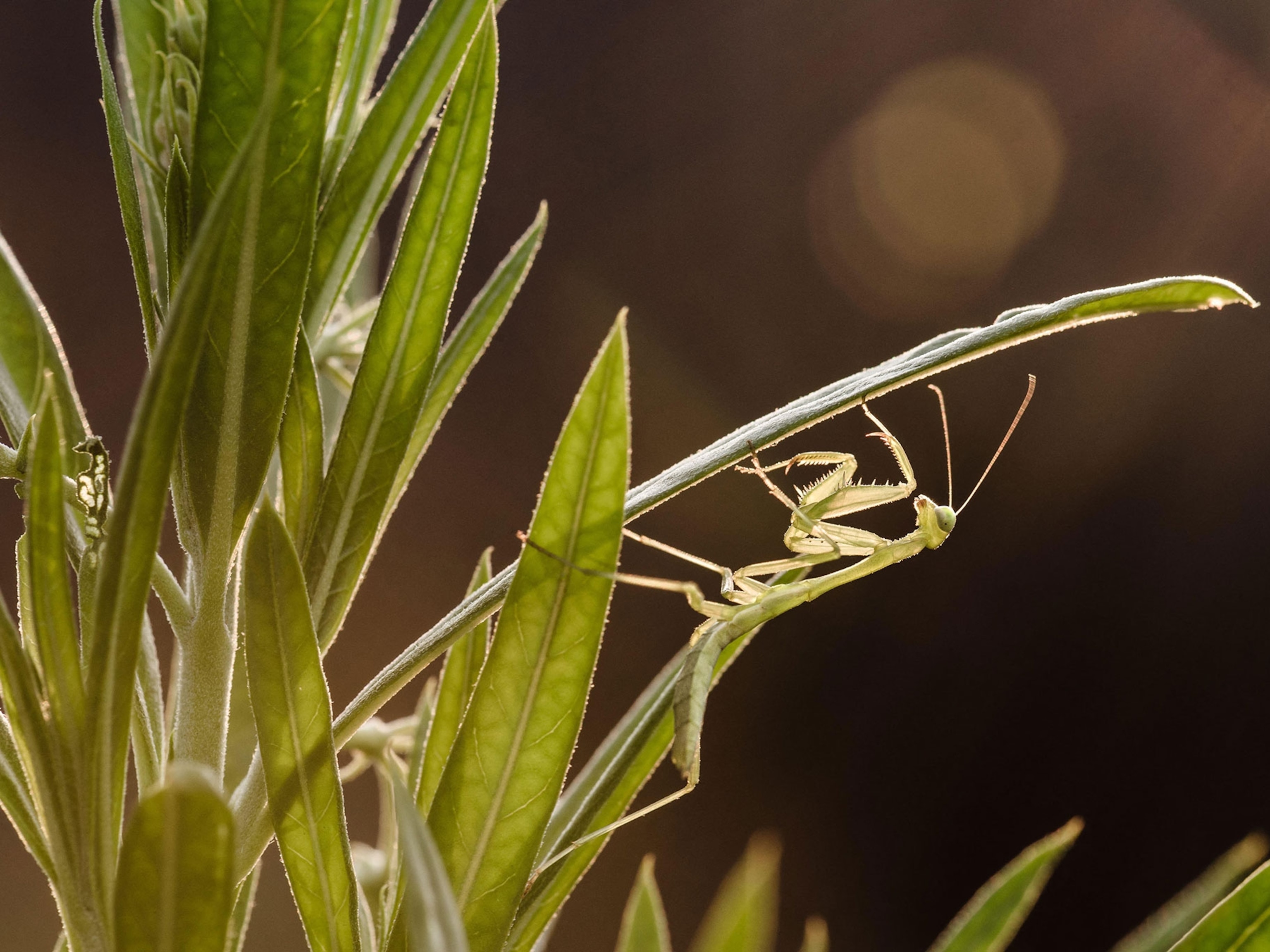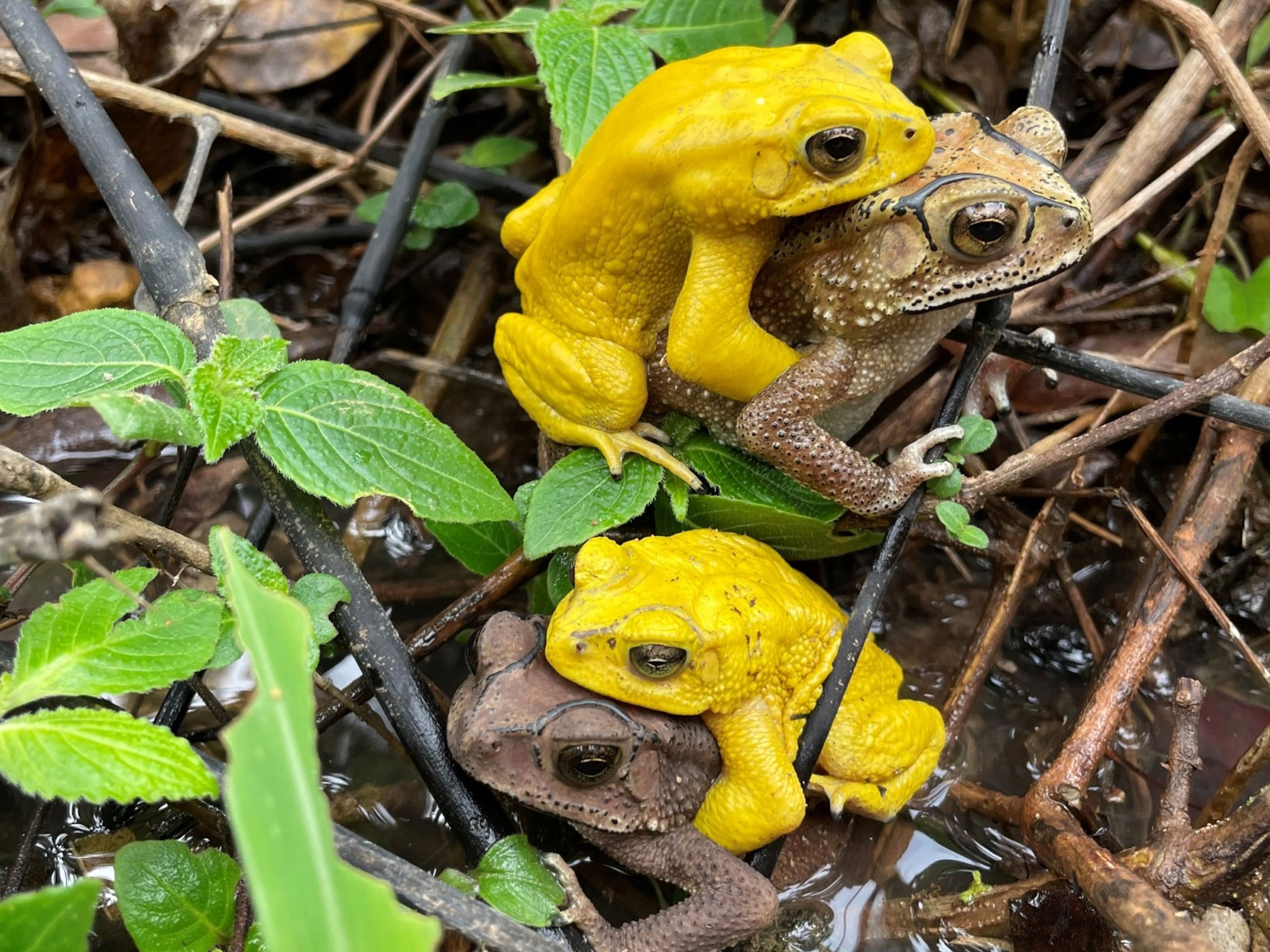
Once thought extinct, bizarre horned frog reappears in Ecuador
This strange frog, which incubates eggs on its back, disappeared for more than a decade before being rediscovered.
Unseen for more than a decade, the enigmatic and endangered horned marsupial frog has reappeared in an Ecuadorian forest, to biologists’ delight.
The frog’s looks are striking: It has horn-like skin flaps above its eyes and irises of gold. But this nocturnal tree-dweller is best known for its bizarre reproduction, which recalls a kangaroo’s. Eggs develop in a pouch on the mother’s back, and they hatch out as fully formed froglets rather than tadpoles. (See "5 Strange Ways Animal Mothers Carry Their Babies.")
A team of biologists discovered the frog while exploring a remote part of the Chocó region in western Ecuador, just outside the Cotacachi-Cayapas Ecological Reserve. The biologists, from the conservation and ecotour group Tropical Herping, heard frog calls they didn’t recognize, and turned their flashlights on the palm leaves.

When they finally spied the noise-maker by its shining eyes and realized it was Gastrotheca cornuta, the horned marsupial frog, “we were so excited we started jumping up and down,” says team member Sebastian Di Domenico. They were able to collect four individuals, including a pregnant female, suggesting a stable population in a rare patch of healthy forest.
Ecuador is a known hotspot for amphibian biodiversity: At least 589 species live within its borders (with new discoveries reported each year), and 45 percent of those are endemic, meaning they’re found nowhere else.
Amazing Amphibians
Yet these animals are in danger, because the country has the highest rate of deforestation in South America, losing around two percent per year (closer to three percent in the South), according to the United Nations Food and Agriculture Organization. Ecuador is now the second largest exporter of palm oil in Latin America, and commercial ventures such as agriculture, roads, oil palm, cacao and banana plantations, and drilling and mining operations are expanding.
“Finding a rare or presumed-extinct frog like G. cornuta is surprising and encouraging,” says Luis Coloma, who directs Centro Jambatu, an amphibian research and conservation organization based in Quito. He notes that at least five other marsupial-frog species of Ecuador “have not been sighted for more than three decades.” (Related: "5 Animals That Carry Babies on Their Backs.")
“These are survivors of the relatively new and highly dangerous threats of climate change and pathogens like the deadly chytrid fungus, plus the traditional threats like habitat loss,” he says. But their continued persistence, he adds, is far from assured.

Protective measures
Ecuador has a relatively robust federal reserve system that theoretically protects at least 20 percent of its land area from deforestation and development. But conservationists say enforcement can be lax, and logging continues apace inside park boundaries. In response, a handful of organizations working in the Chocó are now buying acreage just outside reserve borders, replanting logged areas, and bringing in ecotourism to help foot the bill.
While not itself a complete solution, as the land purchases are often small, “it’s an effective way to fill in the gaps and create a buffer against development,” says Martin Schaefer, director of Foundation Jocotoco, which has so far bought 53,000 acres including G. cornuta’s immediate home. Anyone can donate; $200 buys an acre, which will be matched by the foundation.
Of course, not all local landowners are concerned about declining frogs or disappearing forests. “Some are just doing what they need to do to survive, which may mean selling to a logging company,” says Di Domenico. But some are willing to join the conservation effort. “I’ve seen firsthand that when local communities get involved in protecting a species, people gain a sense of identity and connection with those animals. They start to care,” he says.
When leading ecotours through these landscapes, “we try to spread the message,” he says, “that biodiversity has a value that people can exploit in a good way, without destroying it.”

Officially known as the Tumbes-Chocó-Magdalena ecoregion, bound to the east by the Andes and stretching up through Colombia into Panama and down a tad into northwestern Peru, the area that G. cornuta makes home contains Ecuador’s most pristine remaining lowland rainforests—some of the most threatened in the world—and boasts rare top predators such as jaguars. “The Chocó is almost as biodiverse as the Amazon, but it is poorly explored and disappearing fast,” Di Domenico says.
Which is why some biologists want it made a conservation priority. Says Jocotoco’s Martin Schaefer, “If we want to save the Chocó and its wildlife, including this rare frog, the time is now.”



























